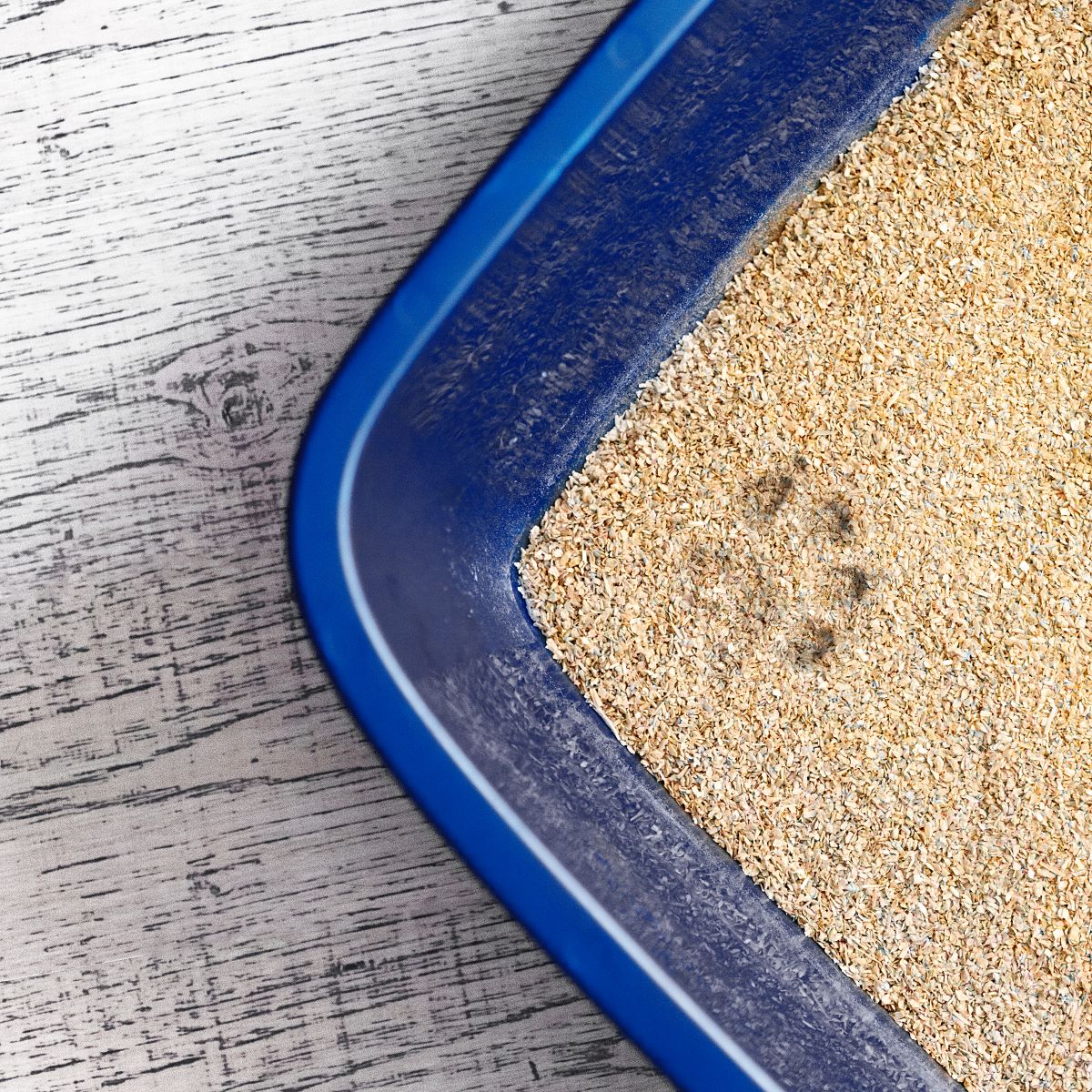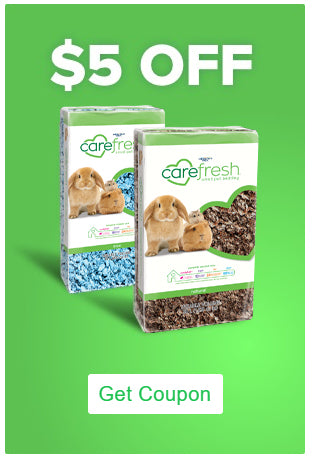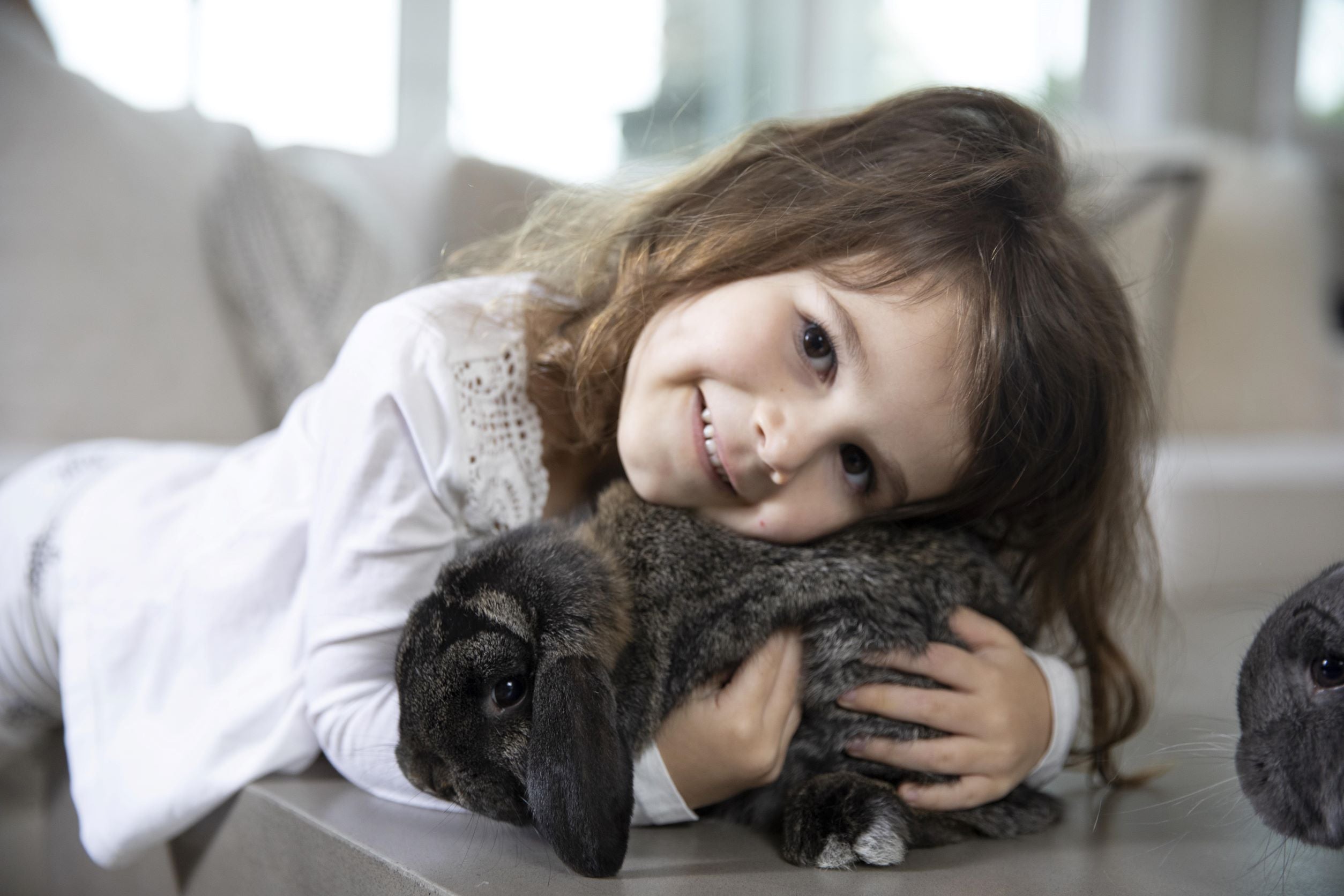Litter vs. Bedding: What’s Best for Your Small Pet?
If you share your home with a bunny, guinea pigs, ferrets, or hamster, you already know—these little pets bring big joy (and sometimes big messes).
The secret to keeping them cozy, clean, and your home smelling fresh? Knowing the difference between bedding and litter—and how to use both like a pro.
What’s the Difference Between Bedding and Litter?
Think of bedding as your pet’s cozy mattress. It’s soft, comfy, and perfect for snuggling, nesting, and lounging.
Litter, on the other hand, is the “bathroom zone.” It’s designed for absorption and odor control, usually placed in a corner litter box or a specific potty area.
When you use both correctly, you get the best of both worlds—happy pets and easier cleanup.
🐇 Rabbits
Rabbits are naturally tidy and can actually be litter trained!
Bedding: Use soft, absorbent natural paper bedding in their main living space.
Litter: Set up a litter box filled with natural, absorbent paper or wood-based litter such as carefresh Rabbit & Ferret Litter.
🧺 Pro tip: Avoid clay or clumping litters—they can be harmful if your bunny decides to nibble.
🐹 Guinea Pigs & Hamsters
These little burrowers love to dig, tunnel, and nap the day away.
They need thick, soft bedding that’s gentle on tiny feet and helps control odor.
Try natural paper bedding like carefresh®, made from ultra-soft, sustainable paper fiber that stays fresh longer between cleanings.
Avoid using litter alone—it’s not comfortable or safe for nesting.
🦦 Ferrets
Ferrets are playful and surprisingly clean! Most will pick a corner to go potty, so adding a small litter box is key.
Bedding: Soft paper bedding for resting and play.
Litter: Dust-free, absorbent litter in their potty area.
Place the litter box where your ferret naturally likes to go—it makes training easy!
🌿 Why Natural Materials Matter
Your small pet’s lungs (and yours!) will thank you for choosing natural, low-dust materials.
Natural paper and wood fiber beddings:
Keep the air cleaner
Control odor naturally
Are compostable and biodegradable
That means a happier pet and a greener planet. 🌎
💚 The Perfect Combo
For the happiest, healthiest habitat:
Bedding for softness and warmth
Litter for cleanliness and odor control
Your pet will love their cozy, fresh-smelling setup—and you’ll love how easy it is to maintain.
Give Them the Comfort They Deserve
carefresh® natural paper bedding is made from sustainable, reclaimed paper fiber that’s ultra-soft, super absorbent, and naturally controls odors for up to 10 days.
It’s the easiest way to keep your small pet’s home fresh, comfy, and planet-friendly.
🛏️ Learn more at carefresh.com
Read MoreThe Joy of Guinea Pig Ownership: Benefits, Convenience, and the Perfect Habitat with Carefresh Natural
If you’ve ever considered adding a small, furry friend to your household, guinea pigs are an excellent choice. These gentle, affectionate animals are not only adorable but also make surprisingly rewarding pets. Whether you're a first-time pet parent or looking for a low-maintenance companion, guinea pigs bring a mix of charm, personality, and ease into your life.
Why Guinea Pigs Make Great Pets
1. Gentle and Social:Guinea pigs are known for their sweet temperament. They rarely bite and are very social creatures, often forming strong bonds with their human caretakers. They also enjoy the company of other guinea pigs, making them great for families who want to adopt a pair.
2. Easy to Handle:Unlike some other small pets, guinea pigs are relatively easy to handle and enjoy gentle interaction. With consistent care, they become quite tame and even responsive to your voice.
3. Low Maintenance:While they do need daily care and attention, guinea pigs are not nearly as demanding as larger pets. Their dietary needs are simple (mostly hay, fresh veggies, and pellets), and they don’t require walks or large spaces to roam.
4. Great for Small Spaces:Living in an apartment? No problem. Guinea pigs don’t need a backyard or large room to thrive. A properly sized cage and daily playtime outside their enclosure is more than enough.
Creating the Ideal Guinea Pig Habitat
A comfortable, clean habitat is essential for a guinea pig’s well-being. One of the most important aspects of their enclosure is the bedding, which not only absorbs moisture and odors but also provides a soft surface for them to walk, play, and burrow on.
Why Use carefresh® Natural Paper Bedding?
When it comes to bedding, carefresh® Natural Paper Bedding is a top choice for conscientious guinea pig owners. Here's why:
Exceptional Absorbency: carefresh bedding is made from natural paper fibers that absorb moisture better than other brands of paper bedding, keeping your pet’s environment drier and healthier.
Odor Control: This bedding has superior odor control, making your home smell fresher and reducing the need for frequent cage cleanings.
Dust-Free and Safe: Unlike some bedding types that can produce harmful dust or splinters, carefresh is virtually dust-free and free of harsh chemicals and dyes. It's gentle on sensitive guinea pig feet and respiratory systems.
Eco-Friendly: Made from sustainable, biodegradable materials, carefresh bedding is a great choice for eco-conscious pet owners.
Soft and Comfortable: Guinea pigs love to nest on top of their bedding, and the soft texture of this bedding makes it perfect for their natural behaviors.
Convenience Meets Care
Using a high-quality bedding like carefresh makes routine habitat cleaning quicker and easier. Because it absorbs so well and controls odor, you'll find that your pet’s enclosure stays dry and fresh longer between cleanings—saving you time while keeping your guinea pigs happy and healthy.
Final Thoughts
Guinea pigs are delightful pets that bring joy, companionship, and a surprising amount of personality into any home. With minimal space requirements, manageable care needs, and the right habitat setup—especially one using carefresh Natural Paper Bedding—you’ll find guinea pig ownership to be both convenient and deeply rewarding.
Thinking about adopting a guinea pig? Now’s the perfect time to prepare the coziest little habitat and welcome a new friend into your life!
Read MoreEssential Factors to Consider When Selecting a Habitat for Guinea Pigs
Beautiful and friendly animals, guinea pigs need a large and comfortable home to thrive. Their health, happiness, and overall quality of life depend on the cage they choose; hence it is vital. Many pet owners choose a cage too tiny or inappropriate for their guinea pigs needs, which can cause stress and health issues. The finest potential housing for your pet depends greatly on elements including size, material, ventilation, simplicity of cleaning, and security.
Carefully considering these components will help you to build a cage for your guinea pig that satisfies their requirements and improves their welfare. Purchasing a top-notch cage will not only help your guinea pig but also simplify and pleasure your care of them as an owner.
Size and Space Requirements
The size of a guinea pig cage is an important aspect to consider while buying. Guinea pigs require more space to run about, play, and exercise. Unlike other small animals like hamsters, guinea pigs are not climbers hence they need a cage with a big floor area instead of several levels.
A pair should have at least 10.5 square feet of area; a single guinea pig should have a minimum of 7.5 square feet, but it's always best to have two guinea pigs as they are very social and need a friend. Guinea pigs love running and exploring, hence the larger the cage is better.
Durability and Contentment
The longevity, safety, and comfort of the guinea pig cages depend on their component materials. Cages are usually composed of wire, plastic, or both. Popular for their good ventilation and visibility, wire cages can be uncomfortable for guinea pigs since their feet might become stuck in the bars.
While they may lack appropriate ventilation, plastic cages are simpler to clean and give guinea pigs a better surface to walk. Some cages balance advantages by combining plastic and wire. Also, make sure the cage is strong enough to resist any scratching or chewing.
Ventilation
Guinea pigs' health depends greatly on good ventilation. Appropriate ventilation helps prevent moisture and bacterial accumulation, therefore reducing the risk of respiratory issues and infections. Make sure your guinea pigs' pig cage has lots of ventilation when selecting one. Wire cages are great for ventilation since they allow air to pass unhindered over the bars.
If you choose a plastic cage, make sure it features slats or ventilation holes to encourage airflow. The cage may get stifling without enough air, which would cause bad smells and health problems for your guinea pigs. Therefore, avoid excessively enclosed cages since they could restrict airflow.
Accessibility and Simplicity of Cleaning
Guinea pigs require daily maintenance including spot cleaning, bedding changes, and food. Easy access and cleanliness of a cage will help to greatly ease this chore. Look for a pig cage that has several entry points such as big doors on the front or top. These give food and water, let you readily reach your guinea pigs, and help with cleaning duties. Using a high quality, absorbent bedding like carefresh makes clean-up a breeze.
Additionally, a cage with a detachable tray at the bottom is useful since it enables you to clear waste and bedding quickly and effectively. Also, look for a cage that is simple to remove and reassemble for cleaning needs.
Portability and Placement
Before buying guinea pig cages, consider their location in your house and if you require a portable choice. The cage needs to be positioned in a calm, well-aired location, away from direct sunlight and drafts.
Certain cages are designed with wheels or are lightweight, facilitating easier movement when required. If you intend to take your guinea pig on a trip, choosing a cage that is convenient to carry can be helpful. Making sure the cage is correctly placed in your house offers a secure and pleasant environment for your pet.
Read MoreThe Best Pets to Adopt for Apartment Living
Apartment living can be a unique challenge when it comes to pet ownership. The limited space and proximity to neighbors means you have to choose a pet that is comfortable with this type of environment.
When you choose the right one, having a pet in an apartment can bring so much joy and companionship, making your living space feel more like a home. This guide will explore the best pets to adopt if you’re living in an apartment.
Why People Seek the Company of Pets
Pets offer more than just companionship; they provide emotional support, reduce stress, and can even improve your physical health. For many people, pets are a huge source of unconditional love and comfort. Here are some reasons why people might seek the company of pets:
Companionship – Pets can reduce feelings of loneliness, especially for those living in an apartment alone.
Stress relief – Interacting with pets has been shown to lower blood pressure and reduce anxiety.
Routine and responsibility – Caring for a pet provides a sense of purpose and helps establish a daily routine.
Social interaction – Pets, especially dogs, can help their owners meet new people and build social connections.
Mental health benefits – Pets can help improve symptoms of depression and other mental health issues by providing companionship and unconditional affection.
With the company of your pet, do you miss your pet every time you travel? Then, Custom Luggage Tags can let your pet accompany you around the world!
Custom luggage tags can be printed with your pet's cute photos and name. Whether it is the cat's proud face, the dog's tongue-sticking smile, or the bird's smart moment, they can all be frozen on this small luggage tag. When you look down and see the familiar little face during the trip, the feeling of loneliness will instantly dissipate.
Finding Pet-Friendly Apartments
Finding a pet-friendly apartment can be challenging, but resources like SpareRoom can make the search easier. SpareRoom is a roommate-matching website where you can filter your living preferences, including accommodations for pets. This will help you find compatible roommates who are open to living with pets. So whether you’re living in a small LA apartment or renting in NYC, you can find the perfect place for you and your furry, feathered, or scaly friend.
The Best Pets for Apartment Living
If you live in an apartment but are thinking about adopting a pet, it's important to consider things like space, noise, and exercise. Here are some of the best pets that will be comfortable in an apartment setting.
1. Cats
Cats are one of the most popular choices for apartment dwellers. These fur balls are independent, low-maintenance, and need less space compared to dogs. Here are some reasons why cats are great for apartments:
Size – Most cats are small and can feel comfortable in smaller living spaces.
Litter training – You can train your cat to use a litter box, making them perfect for apartment living. okocat natural litter is a great choice for small spaces.
Quiet – Unlike dogs, cats are generally quiet animals, making them ideal if you live close to other people.
2. Small Dog Breeds
While some dogs require large spaces and plenty of exercise, many small dog breeds are well-suited for apartment life. Some of the best small dog breeds for apartments include:
French Bulldogs – These dogs are known for their calm and friendly nature. They don't require a lot of exercise and are relatively quiet, which means they won’t upset the neighbors!
Pugs – Pugs are affectionate and adapt well to apartments. They have a playful nature.
Chihuahuas – These tiny dogs are full of personality and energy but can still get enough exercise within an apartment.
Maltipoo - Maltipoos are one of the best dogs for apartment living. Because of their poodle origins, they are easy to train and will listen to you easily. They have a wonderful playful personality.
3. Fish
Fish can be a relaxing and low-maintenance pet option for apartments. An aquarium can also add a touch of tranquility and beauty to your living space. The benefits of adopting a fish include:
Minimal space requirement – An aquarium doesn't take up much space and can fit easily on a countertop or stand. To further enhance the aquarium's aesthetic appeal, you can consider Custom Neon Signs. With customization, you can choose your favorite colors and light patterns, such as gradient colors, flashing effects, or light changes that are synchronized with the movement of the fish, making your aquarium a beautiful addition to your home. In addition, custom neon lights fit perfectly to the size and shape of your aquarium, ensuring even light distribution for optimal viewing.
Low noise – Fish are silent pets, making them perfect for apartments where noise levels need to be kept low.
Calming effect – Watching fish swim can create a calming and stress-relieving environment.
4. Birds
Birds are delightful pets that bring a splash of color to any apartment. Birds that do well in apartment settings include:
Budgerigars (Budgies) – These small, friendly birds are easy to care for. They also have a lot of personality, which means they can be quite entertaining.
Canaries – Known for their beautiful singing, canaries are relatively low-maintenance and don't need a lot of space.
Finches – These small birds are social and active, adding lively chirping to your apartment.
5. Small Animals
Lots of small animals make excellent apartment pets due to their size and low maintenance requirements. Some good options include:
Hamsters – These small creatures are easy to care for and can be housed in a habitat. Just make sure its at least 650 sq ft. filled with lots of comfy carefresh bedding for burrowing.
Guinea Pigs – Guinea pigs are social animals that enjoy interaction so it's best to have two. They can live comfortably in a small enclosure but make sure it's at least 10.5 sq ft.
Rabbits – While they require a bit more space, rabbits can be litter-trained and are generally quiet, making them suitable for apartments.
6. Reptiles
Reptiles are fascinating pets that only need minimal space and maintenance. Some good choices for apartments include:
Geckos – These small lizards can live comfortably in a terrarium.
Snakes – Many snake species, such as corn snakes, are easy to care for and don't need much space.
Turtles – Turtles are quiet and can live in a tank, making them a good option for apartments.
Things to Consider When Living With Pets
When adopting a pet for an apartment, there are a few things you need to consider:
Space – Make sure your apartment has enough space for the pet to move around comfortably.
Noise – Be mindful of the noise levels your pet may produce, especially if you have close neighbors.
Exercise – Make sure you can meet the exercise and activity needs of your pet, whether through indoor play or outdoor walks.
Allergies – Consider any allergies you or your roommates may have before bringing a pet into your home.
Building policies – Check your apartment building's pet policies to make sure you’re allowed to keep your chosen.
Conclusion
Pets can bring huge joy and companionship to your life. By choosing a pet that suits your living space and lifestyle, you can create a happy home environment. Whether you go for a cat, a small dog, a hamster, or even a fish, plenty of animals can thrive in an apartment setting.
Read MoreAre Hamsters the Ultimate Pet?
Are you considering a fluffy addition to your family, one that fits snugly in the palm of your hand and charms you with its tiny antics? Look no further than the humble hamster! These pint-sized bundles of energy have been winning hearts around the world for decades, and for good reason. Today, we delve into why hamsters make such fantastic pets, especially when pampered with carefresh small pet paper bedding and spacious habitats.
The Charm of Hamsters
First things first, let’s talk about their irresistible charm. Hamsters are undeniably cute with their plush fur, twitching noses, and miniature paws. Whether they’re munching on a sunflower seed or zooming around in their large wheel, their playful antics are guaranteed to bring a smile to your face.
Why Choose a Hamster?
Hamsters are ideal for both seasoned pet owners and first-time caregivers. They’re relatively low-maintenance, making them perfect for busy individuals or families looking to introduce a pet into their home. These little critters are independent yet sociable, enjoying interaction with their owners while also content to explore their own miniature world. That's why they make such a great choice for a classroom pet too!
carefresh Bedding: A Soft, Dry, Comfortable Home
One of the keys to keeping your hamster happy is providing them with a comfortable living environment. carefresh bedding is a game-changer in this regard. Made from scratch using natural paper fibers, this bedding is not only soft and comfy but also super absorbent, helping to control odors and maintain cleanliness in their home. Plus, it’s biodegradable and eco-friendly – a win-win for both your pet and the planet!
The Importance of a Spacious Habitat
Now, let’s talk real estate – hamster style. These furry friends may be small, but they thrive in large habitats where they can scamper, burrow, and explore to their heart's content. A roomy habitat allows them to exhibit natural behaviors like digging tunnels and nesting, promoting both physical and mental well-being. Remember, a happy hamster is a healthy hamster!
Hamster Care 101
Caring for a hamster involves more than just providing a comfy cage and tasty treats. Regular cleaning of their habitat, fresh food and water daily, and occasional vet check-ups are all part of responsible hamster ownership. Luckily, with a bit of love and attention, these adorable creatures will reward you with endless entertainment and companionship.So, are hamsters the ultimate pet? If you’re looking for a small, lovable companion that doesn’t require a huge time commitment but still offers plenty of personality and charm, the answer is a resounding yes! Equip them with carefresh bedding for a comfy, dry home, provide a spacious habitat to explore, and watch your hamster thrive in its own tiny kingdom. With the right care and environment, your hamster will not only be a delightful addition to your family but also a constant source of joy and affection. Ready to embark on this fluffy adventure? Your new hamster friend awaits!
Read MoreFilter - Key Words








 email us
email us